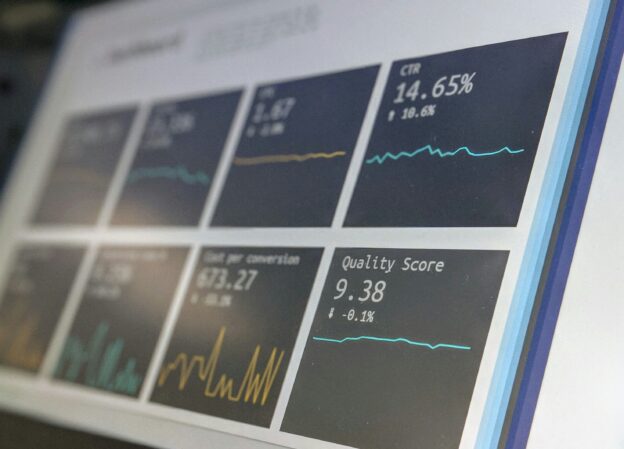For analysis on the government’s 10-Year Health Plan from GK’s Strategic Advisers Steve Brine and Phil Hope, please click the following link: GK Strategy – 10 Year Health Plan


For analysis on the government’s 10-Year Health Plan from GK’s Strategic Advisers Steve Brine and Phil Hope, please click the following link: GK Strategy – 10 Year Health Plan

The government has made its stance on health and welfare clear. The overarching narrative underpinning the Department for Work and Pensions’ (DWP’s) green paper on welfare reform, published in March 2025, is ‘good work is good for health and being out of work can worsen health’.
Coupled with the Secretary of State for Health and Social Care Wes Streeting’s recent comments that an over-diagnosis of mental health conditions is preventing people from working, it is evident that the government sees work as a key component of the welfare state.
This marks a distinct shift in how work, health and welfare have historically interacted in policymaking. Where once the welfare system was seen primarily as a safety net, it is now being recast as a springboard that supports individuals back into the labour market.
The government recognises that something has shifted in the labour market post-Covid-19. There has been a 45% increase in health-related benefits claimants since 2019-20 and more than 9.3 million people out of work. There are swathes of statistics which demonstrate that Britain’s workforce has not fully recovered from the pandemic and the current level of sickness and absenteeism is unsustainable.
Given the scale of the issue, the government has sought to identify how improving health outcomes might support people into work and enable them to stay there. Ideas such as offering weight loss jabs, dubbed ’jabs for jobs’, were floated at the end of last year. This gives a clear signal that the government is keen to encourage people back into the workplace and is open to non-conventional methods of doing so.
While DWP consults industry and businesses on its planned welfare reforms, an opportunity has arisen for those focused on supporting the government’s vision for work and welfare. Employers should be prepared to play a larger role in supporting the workforce to remain engaged in the labour market. This offers significant opportunities for occupational health providers who can support employers to promote the health and wellbeing of their staff.
Schemes such as mental health and wellbeing programmes will become increasingly common in employment offerings as businesses take on a growing role in a broader, work-led approach to welfare. Occupational health providers who can help fill this gap between welfare, health and long-term employment are well placed to help facilitate the government’s policy objectives.
Reducing economic inactivity is a key priority for the government in its mission to kickstart growth. By implementing supportive workplace schemes and collaborating with private occupational health providers, employers can not only improve individual outcomes but also contribute to broader societal and economic resilience.
The question now for policymakers is exactly how occupational health providers can support businesses to deliver on the government’s objectives for welfare reform. Ministers, civil servants and parliamentarians are keen to understand the art of the possible and how they can work with providers to support workers to remain as active participants in the UK’s workforce.
Please contact Lauren Atkins (lauren.atkins@gkstrategy.com) if you would like to discuss occupational health and the government’s welfare reforms in more detail.

GK Strategy was pleased to host former Chair of NHS England Richard Meddings and former health minister and Chair of the Health and Social Care Committee Steve Brine for an ‘in conversation with’ discussion on Thursday 15 May to examine some of the challenges facing the government, the Department of Health and Social Care and the NHS 10 months into Labour’s term in office.
Meddings and Brine took a deep dive into a range of issues affecting the health and social care sector, exploring the implications for investors and service providers. From funding pressures to the abolition of NHS England, the discussion drew on our speakers’ extensive experience to evaluate the road ahead for the health system and the reforms the government will need to deliver to meet its ambitious policy objectives.
Much of the discussion focused on the NHS and the role of ICBs in a reformed health system following the announcement that NHS England would be abolished. There was agreement that health secretary Wes Streeting had received a tough inheritance, including mounting pressures on the health service and a poor fiscal climate making a significant injection of additional funding unlikely. The panellists highlighted the urgent need to redesign governance frameworks that better meet the demands of a modern health service.
Meddings and Brine spoke in detail about the role of technology in reforming the delivery of healthcare. They agreed there needs to be a steady stream of investment to maximise the increasing role AI will play in improving patient care and delivering efficiency savings within the NHS. The pair emphasised the need for Streeting to secure the ear of Chancellor of the Exchequer, Rachel Reeves, who they argued will need to prioritise health targets despite a constrained financial budget.
The two panellists agreed that reducing the elective care backlog and meeting the 18-week referral to treatment target was the key retail offer to voters at the general election and will be the main health priority for the government. This is despite wider initiatives that might have more significant long-term outcomes for the health of the UK’s population. Other short-term priorities for the NHS that were discussed included reducing the number of people in urgent care, increasing access to primary care, and improving cancer detection rates.
Towards the end of the session, the discussion shifted to the upcoming 10-Year Health Plan which will set out the government’s healthcare reforms in detail. Meddings and Brine agreed it is likely to prioritise prevention, the shift from hospital-based to community care and greater digital integration, which were the three ambitions put forward by Labour pre-election. The panellists highlighted that meaningful progress will depend on early intervention strategies and targeted investment, particularly in tackling obesity, cancer and mental health challenges.
For investors and stakeholders, the panel’s message was clear: steady investment in health, coupled with a pragmatic embrace of technology and AI presents a significant opportunity to reshape the delivery of healthcare at a time when demands on the NHS continues to rise.
Health, social care, and life sciences is one of the GK’s core sectors. GK supports a range of businesses and investors to navigate the political, policy and regulatory landscape and help them to realise their commercial objectives. Please get in touch if you would like to discuss the impact of politics and policy on your business or investment decisions.

This week the government launched a consultation on its plans to tighten the sugar levy. This follows last year’s review of the effectiveness of the SDIL to date. Chancellor Rachel Reeves strongly hinted that the government was considering broadening the scope of the levy at October’s autumn budget and the consultation document does just that.
The government’s proposals include reducing the minimum sugar content level at which the levy applies from 5g to 4g; removing the exemption for milk-based drinks; and removing the exemption for milk substitute drinks. This means milkshakes, pre-made coffees and many of your favourite fizzy drinks will be reformulated or face becoming taxable.
Initial analysis suggests that over 90% of milk-based products will be affected. Initially exempt because milk is a source of calcium for children, the government’s revised position is that any potential health benefits are outweighed by the negative impact of consuming high levels of sugar.
Although the contents of this consultation come as no surprise to those who have been closely following policymaking in this space, it does set the mood music for the upcoming national food strategy and signals a government unafraid to be heavy-handed when it comes to public health. Although the SDIL is widely considered to be a successful and effective policy intervention, the UK’s sugar consumption remains significantly above recommended levels, especially among children. By lowering the sugar thresholds and widening the scope of products, more soft drink producers will be forced to reformulate products or see their production costs increase. However businesses decide to act in response to changing regulations, the government hopes the result is a significant reduction in the nation’s consumption of sugar.
Obesity costs the NHS around £6.5 billion a year. NHS data shows a deeply concerning trend of rising childhood obesity. Almost 10% of children are now living with obesity by the time they start school and 24% of children have tooth decay by aged five thanks to excess sugar consumption. With obesity taking effect earlier in life, the associated costs for the NHS are set to soar to £9.7 billion by 2050. This is especially bad news for a government grappling with a challenging economic environment and acute pressures on public spending. But for Labour, it feels all the more personal because in the most deprived areas the prevalence of obesity can be almost 15% higher than in the least deprived ones – something that the last government’s food strategy picked up on. Tackling health inequality is a huge part of the government’s commitment to ensuring all children and young people have the same opportunities and start in life.
For industry, there is a fine balance to strike. Full resistance to public health reforms designed to improve the health of our children would leave a bad taste in consumers’ mouths. Developing and maintaining an open, constructive dialogue with government, including showcasing innovative reformulations, will be a far more effective approach. Framed in this way, industry will be able to better make the case that a proportionate approach to SDIL and wider public health reforms will deliver positive health and economic change.
Now is the time to engage. Those who can successfully demonstrate alignment with the government’s public health goals will be well-positioned for future discussions about the developing national food strategy, which will set the strategic direction of travel for the rest of this parliament and beyond. One thing is for sure, this is unlikely to be the last government intervention in the name of improving the nation’s health.
The consultation runs until 21 July. If you’d like to discuss contributing to it or the wider HFSS policy environment, please contact Lauren on lauren.atkins@gkstrategy.com.

Smoking remains one of the leading causes of preventable deaths in the UK, with over 200,000 smoking-related deaths each year. With the Tobacco and Vapes Bill currently undergoing its legislative stages in Parliament, carving a clear direction of travel for the future of smoking in the UK, businesses have a unique opportunity to align with the government’s public health ambitions and unlock a wealth of new opportunities as part of the national push to reduce smoking rates.
The landmark bill aims introduce a smoke-free generation by banning the sale of tobacco products to anyone born on or after 1 January 2009, meaning affected individuals will never be legally able to purchase a cigarette. While some argue that this is a ‘nanny state’ intrusion into personal freedoms, the main provisions of the bill have long been discussed and were first trailed by the previous Conservative government. There is therefore a consensus across parliament that this is a necessary measure which will deliver long-term benefits to the general public and a struggling public health system.
The rise in demand for healthier lifestyles and the growing number of people looking to quit smoking present significant opportunities for businesses in the health and wellness sector. Companies offering smoking cessation products like nicotine replacement therapies (NRTs), or even digital health apps designed to support quitting, stand to benefit from growing demand for their services. Moreover, businesses that create products that promote overall wellbeing, such as fitness equipment, health supplements or stress-management tools can provide an alternative for individuals who are trying to improve their health after quitting smoking.
Furthermore, with employee wellbeing being a key focus for this government across a number of fronts, including the Employment Rights Bill, incorporating smoking cessation support into corporate health programmes is essential. Offering incentives for employees to quit smoking or providing access to cessation resources can help improve workplace health, increase productivity and reduce absenteeism due to smoking-related illness. Companies that invest in these types of employee-focused health programmes also benefit from a healthier, more engaged workforce.
It was confirmed in December 2024 that the government is investing an additional £70 million in 2025-26 to support local authority-led smoking cessation services. Given this investment, there is an increasing demand for qualified professionals and organisations that can offer expert advice, counselling and support for individuals attempting to quit smoking. Healthcare providers, private clinics or digital health platforms focused on smoking cessation are well placed to position themselves as a partner to government and highlight how initiatives can be rolled out and improved as ministers progress with their smoke-free ambitions.
To support the public understanding of new legislation, those who can offer both creative campaigns and innovative products aimed at raising awareness about the dangers of smoking, or promoting the benefits of quitting should focus on engaging with integrated care boards (ICBs) as they look to manage local service and improve outcomes. A 2023 report from Action on Smoking and Health found that tobacco control was perceived to be an above average or high priority in 14 of the 29 surveyed ICBs, underlining the necessity of appropriately resourcing ‘stop smoking’ services.
The passage of this legislation is not just a step toward improving public health – it is also a catalyst for innovation and business growth. Companies that can align with these objectives, whether by providing smoking cessation products, supporting corporate health programmes or developing creative campaigns have an opportunity to thrive in an increasingly health-conscious market. Given the government’s overall focus on prevention in its healthcare agenda, it is vital that businesses engage with the Department of Health and Social Care, ICBs, NHS trusts and other stakeholders to provide expertise on the rollout and efficacy of anti-smoking campaigns that will form a crucial part of this government’s potentially transformative approach to public health.

GK Strategy is pleased to share its ‘Health Policy Spotlight’ report which sets out some of the key health policy trends to watch out for in 2025 as we look ahead to the government’s eagerly anticipated 10-Year Health Plan.
The report can be accessed here: Health Policy Spotlight – GK Strategy – March 2025